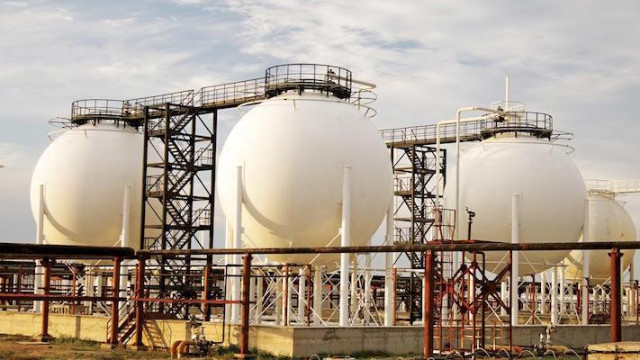The Federal Government has announced its intention to clear all due payments to gas producers, including long-standing legacy debts.
During a panel discussion hosted by Sahara Group on Friday in Lagos, Senior Technical Adviser to the Minister of Petroleum Resources (Gas), Abel Nse, shared this update.
The event, themed “Harnessing Gas for Africa’s Sustainable Future,” sought to stimulate discussions regarding the continent's energy requirements.
Nse mentioned that President Bola Tinubu has instructed relevant ministries and agencies to make resolving the debt situation a priority.
“The Federal Government is dedicated to progressively settling the outstanding debts. Furthermore, we are focusing on essential aspects such as gas pricing, gas flare penalties, legacy debt, gas infrastructure, supply receivables, and the availability of LPG to foster upstream investment and advance sectoral development,” Nse stated.
He highlighted that the government is actively working to enhance gas utilization as part of its wider objective to promote domestic commerce and industrialization. “Nigeria must capitalize on its gas resources efficiently. Gas has the potential to revolutionize the sector and propel progress,” he noted.
Regarding gas flaring, Nse remarked that upstream operators are reluctant to adjust the minimal incentive costs related to gas flare penalties. “Currently, gas flaring in Nigeria has decreased to under one percent, which is a significant achievement. However, the government cannot fund projects that are not financially viable,” he explained.
Head of Business Development (Gas) at Sahara Group, Ijeoma Isichei, referred to gas as a sustainable and efficient bridge fuel.
She highlighted that the utilization of gas promotes industrial growth, job creation, and economic development while enhancing energy access for disadvantaged communities.
Similarly, Mariah Lucciana-Gabriel, Head of Integrated Gas Ventures at Asharami Energy, echoed these views, pointing out that Nigeria has ample commercial gas resources to support industrial progress.
“We possess sufficient gas to facilitate Nigeria’s energy transition. It's essential that we stay focused on developing an optimal energy mix for the future,” Lucciana-Gabriel affirmed.
She also stressed the necessity for Nigeria to customize its energy solutions to fit local contexts. Additionally, Mobolaji Sumonu, Lead, Upstream at Fidelity Bank Plc, raised alarms about the limited investments in the gas sector. He noted that many gas projects lack bankability, which complicates support from financial institutions.
“To secure funding, projects must demonstrate viability. Insecurity, inadequate infrastructure, and financing issues are remaining challenges for gas development,” Sumonu pointed out.
Lead at Platform Africa, Adeola Yusuf, voiced concerns regarding the strained relations between operators and the media, advocating for enhanced mutual understanding and open collaboration.
Yusuf also criticized the slow pace of the government in tackling gas flaring issues and ensuring domestic gas access.
“It’s concerning that approximately 80 percent of Nigerian women still do not have access to domestic gas.
The government must take gas flaring seriously and implement stricter penalties to prevent wasting trillions of Naira in resources,” he concluded.




















